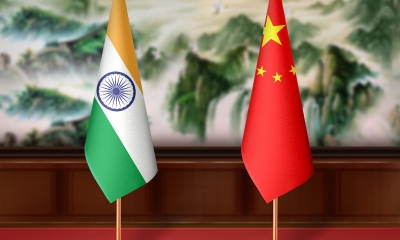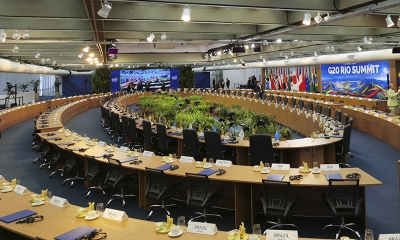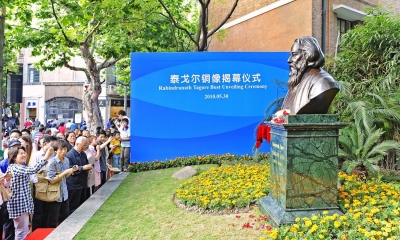Wang Yi’s New Delhi Visit Boosts China-India Ties
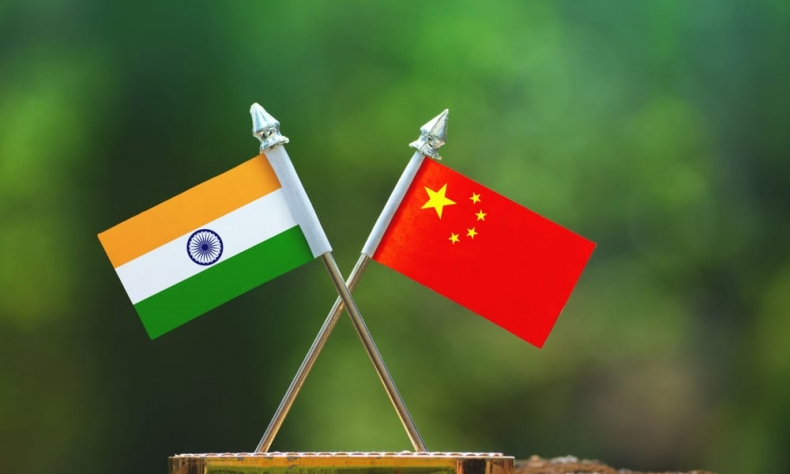
The essence of Wang Yi’s visit has demonstrated that both sides are determined to enhance mutual trust and focus on cooperation while properly managing differences in a bid to take the bilateral relations to a new level.
“China and India should be partners for mutual success instead of adversaries of mutual attrition”, this was the key message on the troubled India-China relationship delivered by Chinese State Councilor and Foreign Minister Wang Yi at the press conference on the sidelines of the country’s 2022 “two sessions” on March 7. Quoting an Indian proverb, he further said, “Help your brother’s boat across, and your own boat will reach the shore.” His eloquent message is a clear indication that the two close neighbors- China and India, should cooperate with each other to resolve the several hotspot issues affecting bilateral ties through dialogue.
There is no denying that the border clashes between the Indian and Chinese militaries have visibly dichotomized the Sino-Indian relationship, tearing both countries apart, significantly affecting the socio-economic fields of two Himalayan neighbors for the past two years.
Against this backdrop, as part of a pan-South Asian tour to Pakistan, Afghanistan, and Nepal, Wang Yi paid a two-day surprise visit to India on March 24-25 in a bid to advance mutually beneficial cooperation in order to put an end to the diplomatic frostiness between the two Asian powers – India and China for more than two years.
Paving the way out of border standoff
Wang Yi’s working visit to New Delhi holds special significance as this was the first visit by the most senior Chinese minister to India after two years’ military standoff along the Line of Actual Control (LAC) in Ladakh. The duration of Wang’s stay in New Delhi is short but the canvas of his visit is of great symbolic significance at a time when the Sino-Indian relations seem to be at “the most difficult phase” rising out of the long-standing military standoff.
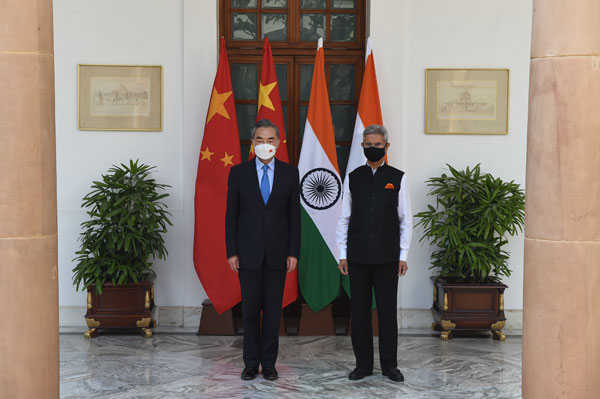
Wang Yi’s New Delhi visit can be seen as an icebreaker after the Ladakh face-off episode. His visit demonstrated that the two countries are ready to make some course corrections in their approach to each other as bilateral cooperation, in particular, trade and economic partnership and people-to-people relations suffered a lot due to the border skirmishes.
It’s really encouraging to see that China has offered an olive branch to India to kickstart the diplomatic engagement with high-level visits from both sides this year to resolve the lingering disputes that are against “the fundamental interests” of both countries. Indian sources were quoted as saying that Wang invited India’s National Security Adviser Ajit Doval and his Indian counterpart, S Jaishankar to visit China for talks on the normalization of bilateral ties.
But more importantly, the positive gesture of Wang’s visit will surely help pave the way for Prime Minister Narendra Modi’s visit to China to attend the 14th BRICS Summit that President Xi Jinping will host later this year. It is hoped that President Xi and Prime Minister Modi are making continuing efforts at guiding bilateral ties towards normalcy.
According to Indian media reports, on March 25 during the meeting between Wang and Jaishankar, as well as separately with Doval, both sides exchanged notes on several hotspot issues affecting bilateral ties. India told the Chinese foreign minister that the complete disengagement of Chinese and Indian troops from a face-off on their remote border is key to better relations. After his three-hour meeting with Wang, the Indian Foreign Minister told a news briefing, “I was very honest in my discussions with the Chinese foreign minister, especially in conveying our national sentiments.”
On the other hand, during his meeting with Jaishankar and Doval, Wang Yi assured the Indian side that China will handle India’s sensitive issues with prudence. In a statement, the Chinese Foreign Minister said that the two sides should not allow the border dispute to define their relationship or to affect the overall development of bilateral ties. “China does not pursue the so-called ‘unipolar Asia’ and respects India’s traditional role in the region. The whole world will pay attention when China and India work hand in hand,” Wang said, according to the Chinese official press release.

Common stance on Russia-Ukraine conflict
According to media sources, it is learnt that during their meetings, both sides also exchanged views on the ongoing Russia-Ukraine conflict, Afghan issue, COVID-19 response, and other multilateral issues. The Ukraine crisis has offered both India and China to stand together against the United States which is using Ukraine as a political pawn. India didn’t join the U.S.-led western camp to impose sanctions against Russia, for which the U.S. has already put India under some pressure.
So far, both India and China, as two important regional powers and emerging economies as well as members of BRICS, have abstained on Ukraine-related resolutions at the UN Security Council and Human Rights Council. It is an opportune time for two close neighbors to speak out in one voice against the U.S. for its failure to assume its responsibility for the Russia-Ukraine conflict. The U.S.-backed NATO ignored Russia’s security concerns which should be one of the roots for the crisis. The two sides also expressed grave concerns over the impact of unilateral sanctions on the global economy and supply chain security.
The essence of Wang Yi’s visit has demonstrated that both sides are determined to enhance mutual trust and focus on cooperation while properly managing differences in a bid to take the bilateral relations to a new level. The visit of Wang has made the Indian business community happy, once again generating the buzz about the Chinese investments in India.
It is unrealistic to expect that India and China will have no differences and all unresolved issues will disappear in the near future but dialogue will go on to reset the testy India-China ties with mutual respect. As a whole, Wang Yi’s visit surely lends credence to the strength of China-India ties while offering high promise and strong confidence in the trade and economic front of the “dance of the Dragon and the Elephant”, so as to better benefit the two peoples residing on either side of the Himalayas. As the 72nd anniversary of the establishment of diplomatic relations between China and India comes on April 1, 2022, it is hoped that Wang Yi’s visit will take forward the bilateral relations, leaving behind the Ladakh incident.
The article reflects the views of the author and not necessarily those of China Focus.
 Facebook
Facebook
 Twitter
Twitter
 Linkedin
Linkedin
 Google +
Google +




